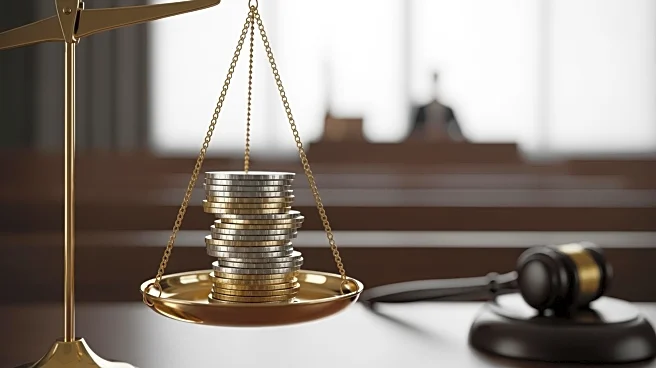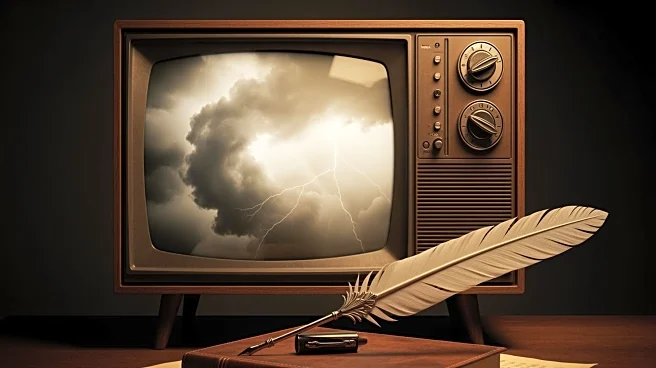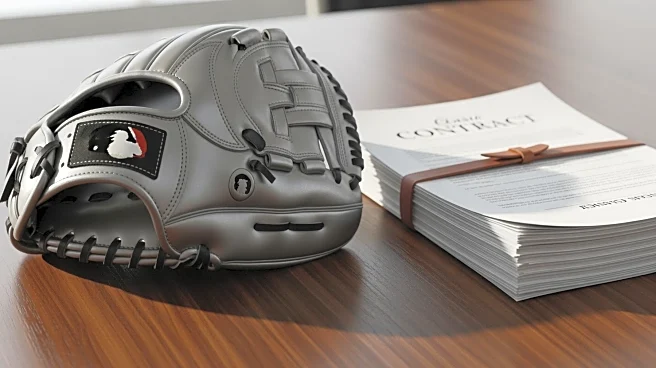What's Happening?
During recent oral arguments at the Supreme Court, the Trump administration faced significant criticism over its defense of tariffs, a key component of President Trump's economic policy. Six justices expressed
their dissatisfaction with the Justice Department's arguments, suggesting that the tariffs may be unconstitutional. The hearing was described as a 'bloodbath' for the administration, with justices barely concealing their frustration with the government's stance. The case has been pending for ten months, with observers waiting to see if the court would impose limits on President Trump's authority.
Why It's Important?
The Supreme Court's reaction to the Trump administration's defense of tariffs could have substantial implications for U.S. economic policy and presidential powers. If the tariffs are deemed unconstitutional, it could limit the executive branch's ability to impose similar economic measures in the future. This decision could affect industries reliant on international trade, potentially altering market dynamics and impacting businesses that have adapted to the tariff regime. The case also highlights the judiciary's role in checking presidential powers, which could influence future administrations' policy decisions.
What's Next?
The Supreme Court's decision on the legality of the tariffs is awaited, which could set a precedent for executive authority in economic matters. Depending on the outcome, there may be reactions from political leaders, businesses, and trade partners. If the tariffs are struck down, industries affected by these measures may seek adjustments or compensations. Additionally, the ruling could prompt legislative action to clarify the scope of presidential powers in trade policy.
Beyond the Headlines
The case underscores the tension between the executive branch and the judiciary, particularly regarding economic policy. It raises questions about the balance of power and the extent to which the president can unilaterally impose economic measures. The decision could influence public perception of the judiciary's independence and its role in safeguarding constitutional principles.










